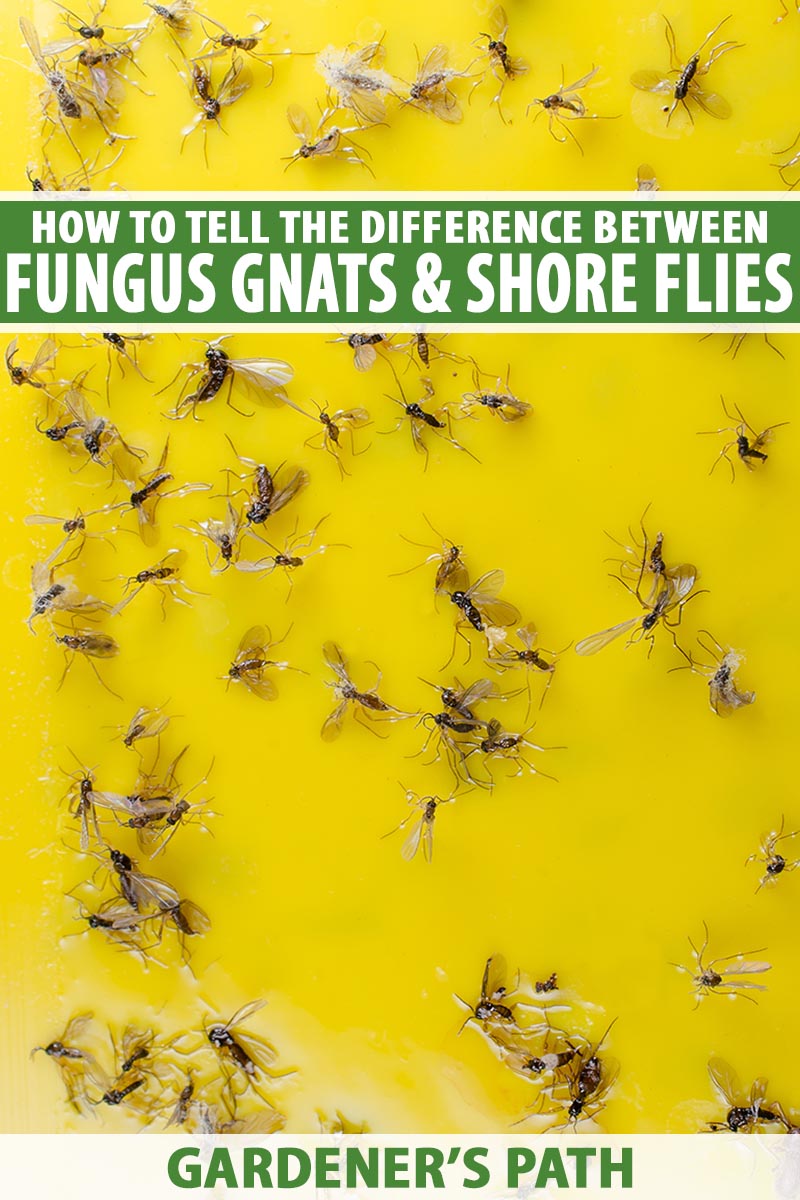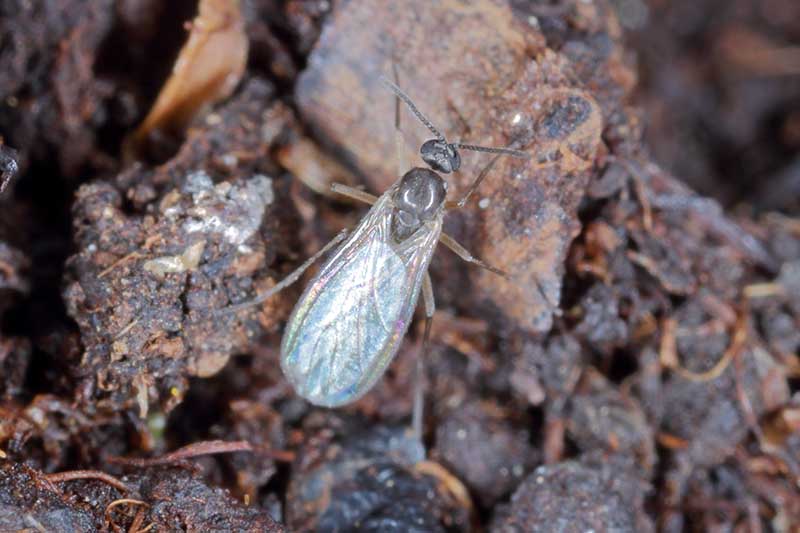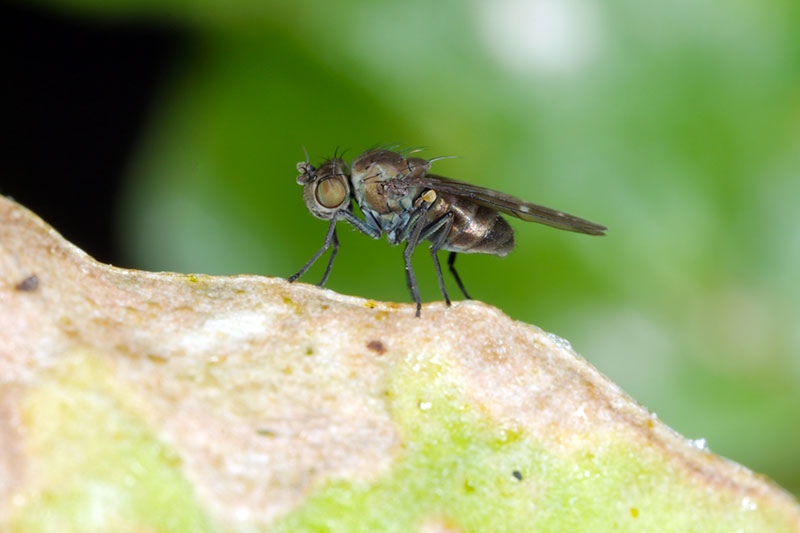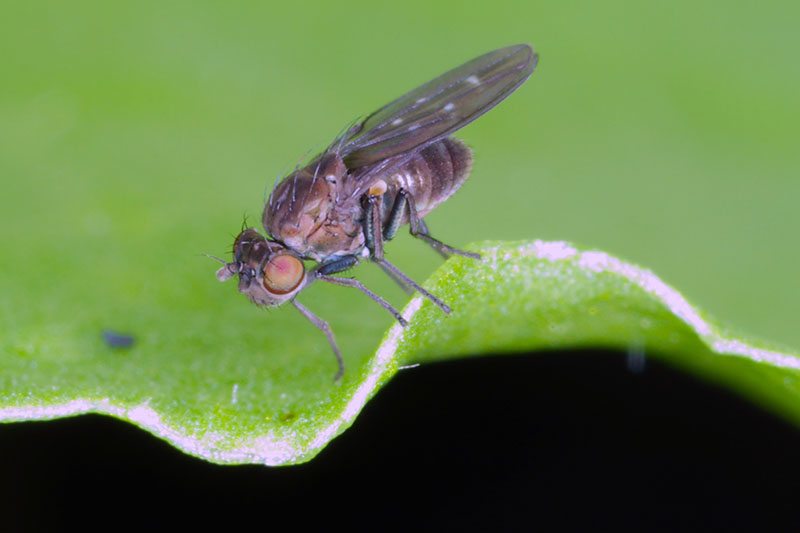Little black insects are hang around your plants , looking suspicious . You do a quick lookup online and immediately two outcome crop up up : fungus gnats or shoring fly . But which one are you dispense with ?
Both are often found hovering around plants . Both like moist condition . And both are nuisance flies that can become pestilence by convey disease and slenderize the aesthetical quality of your plants .
We link to vendors to assist you obtain relevant products . If you buy from one of our links , we may earn a commission .

Fungus gnat adult.
There are some fundamental differences between these two insects , and we ’ve laid out all of the details below , including some straight ways you could severalise them apart .
What You’ll Learn
recognition and Biology
Symptoms of an Infestation
signal detection and Monitoring

cause for Infestation
Bradysiaspp , or fungus gnat , are sour brown or sinister , 1/16- to 1/8 - inch - farseeing mosquito - similar dirt ball with foresighted , train of thought - similar feeler , dangly leg , and clear offstage .
The adults are fallible broadside , and you ’ll often find them resting on the sharpness of throne , on plant leaves , or on the soil surface .

The larva are slim , whitish , semitransparent maggots that make a one-quarter of an inch long when to the full grown . Their digestive system of rules is often seeable , and the maggot have a distinctive , shiny black head capsule .
shoring fly ball , the most coarse mintage found beingScatella stagnalis , are housefly - shaped , and an eighth of an in long , with dark wing that have five lightsome floater .
They have little legs , short , bristle - like antenna , and reddish eyes . They are strong aviator , and seethe around with more purpose than the gnat do .

Their larva are opaque cream to tannish dark-brown rice - grain - corresponding maggot that appear headless , lack the pitch-dark head capsule fungus gnat maggot have .
The deviation in their appearance is not always obvious when they are flying around .
Catching a good look at them while resting – or better yet , stuck to a sticky card – makes identification easier . For a closer feel , reckon the pests with a hand electron lens .

Location and Symptoms of an Infestation
Both of these pest have sex damp location , so any time when you have stiff potting medium or standing water around , be prepared to see one or the other of these worm fly about .
Fungus gnat are plebeian in homes and ingreenhouses . The larvae provender on decaying fungi and organic matter in the potting medium , and they may damage roots if populations uprise orotund enough that the maggot are competing for solid food .
terms is mainly discover on seedling and cuttings . Root rot is often a secondary symptom of larval feeding , thanks to the solution wound they cause .

Adult gnats leave faecal spots , aka flyspeck , on the works surfaces , concentrate the plant life ’s aesthetical caliber .
shoring flies are mainly a nursery pain in the neck insect . Usually the only legal injury they cause is flyspeck , similar toBradysiaadults . The maggots feed on alga , and on rare occasions they may tip on roots infected with fungi .
Besides seeing the insects on or around your plants and discover their scathe , another style to observe them more intentionally is by adjust up embarrassing cards .

These not only capture the insects and aid with monitoring , but once they ’re stuck and immobile , they are a lot easier to identify .
Use yellow pasty wag to monitor and trap fungus gnat adult . Blue embarrassing cards are more effective for trapping shoring fly . But both colors will get either of these pests as they vacillate or nix past .
apply a hand lens to take a closer look , note the deviation to help you identify which insect you ’re working with .
you could supervise for the larvae of both dirt ball with slices of murphy set on the potting average surface . The maggots will move through the medium to eat on the spud , where they are easygoing to see and identify .
Check for larvae every three to four days .
Fungus gnat and shoring fly deal reason why they may become an issue .
These include overfertilization , which nurture fungi and algae growth , overwatering , high concentrations of organic subject in the growing medium , and works debris , which all support reproduction .
Avoid all these lawsuit if you ’re not keen on finding these insects . For more information onhow to deal with fungus gnats , contain out our specific ascendance guide . watch more about shore flies here . ( coming before long ! )
Shoo, Fly!
When the flies attend around your works are both modest and dark emblazon , it can be difficult to know exactly what you ’re dealing with .
By analyse the above - described qualities of their appearing and symptoms , along with some ready to hand traps and a magnifying glass , the differences between them become apparent .
Next up , it ’s not just fungus gnat and shore fly front that can tease your plants . Read up on how to place otherplant pestshere :
© necessitate the Experts , LLC . ALL RIGHTS RESERVED.See our TOSfor more inside information . Uncredited photos : Shutterstock .
About
Sylvia Dekker